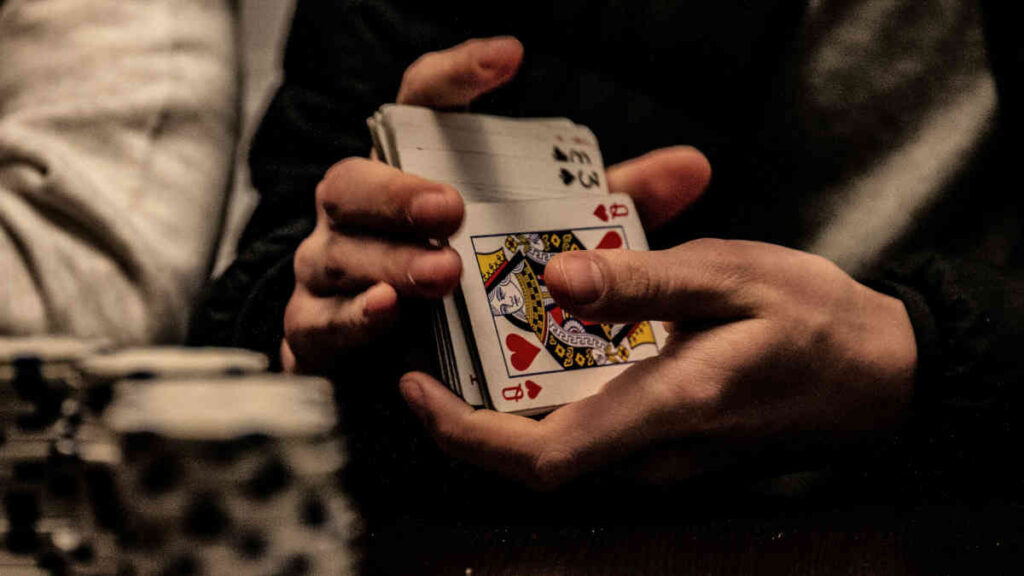Many people reading this site believe that poker is more than a game. This hobby has repeatedly drawn them back to physical or digital card tables for years, if not decades.
For those seasoned in it, this is not just a simple card game but a pastime riddled with rituals and specific notions that those not into it are unlikely to understand.
Nit, old man coffee, donk bet, barrel, river, tilt, and float are terms that the regular Joe is not going to figure out what they mean intuitively.
Poker is a specific test of wits and luck that provides a rush like no other, and below, we seek to explore what is so special about it concisely.
What keeps players flocking back to it? Why does it captivate some individuals to the level it does, and how has its evolution reshaped how it affects people in all corners of the planet?
Poker’s Growth & Its Novel Enticements
Something that many laypeople are not aware of is that poker is not that old. It was created in the form we know it now in the 19th century and went from something primarily partaken in backdoor rooms to a mainstream pastime in the mid-20th century.
The launch of the World Series of Poker in the 1970s laid the foundation for a competitive card gambling arena and blew the game to what it is now. Without question, the rise of this organization, the WSOP, also played a massive role in crafting the current poker subculture.
Its competitions are responsible for building a stage, the Main Event, that players worldwide aspire to reach.
In the 1800s, poker and all the games that inspired it were linked with Wild West saloons, embedded in American folklore as synonymous with outlaw and hustler living.
In the mid-1900s, poker morphed into a more publicly acceptable pastime, and in the 2000s, it became something considered a skill-based money-making endeavor, one that could be practiced from anywhere, thanks to the advent of poker online real money sites.
The emergence of gambling hubs on the Web also invented the card grinder lifestyle, birthing professional players who spent hours daily playing for a living online.
The negative aspect of the Internet link is that the digital domain created a fantasy of quick riches. It made people believe that almost anyone can work from home via something that combines intellectual prowess and gambling thrills. It made playing poker a viable lifestyle, but only for a distinct few, which helped it become a cultural phenomenon that attracted those who rejected the traditional nine-to-five life.
That in and of itself is a major driving factor for many to play online and at dedicated card rooms, joining those who share their dreams and viewpoints, which remains a significant pull.
Poker as a Driver for Social Interactions
For many, poker is not just about money and beating others. It is too about connecting with people. It is a glue for creating connections through a shared passion.
If you think about it, poker is an ideal playground for humorous banter. It helps low-stakes gamblers take a break from daily troubles, and more risk-happy ones enter adrenaline-inducing high-stakes games/tournaments where a far tenser mood dominates, as there is much more to gain and lose.

The sphere’s online dimension extends to forums, social media, and other platforms. All of these virtual places have made Internet poker a global landscape that connects gamblers from all over. They welcome players of all levels, giving them conversational avenues on top of freerolls, high-stakes tournaments, and everything in between for them to match their skills and socialize.
It is a proven fact that competitive group activities strengthen social ties, and in our opinion, nothing does this better than poker, as it improves social prowess by teaching people how to pay attention to things like body language and speech patterns.
The Thrill of Winning in Poker
Of course, the prime goal in any form of gambling is to win money. Now, casual gamblers cannot win nearly as much in poker in cash games as in casino gaming. There are no jackpots in player vs. player gambling.
Nonetheless, for some, winning a poker hand supplies a bigger rush than claiming a prize in chance-based gaming on account of the competitive nature of this pastime. In games played among friends, bragging rights are also at stake, and in online tournaments, prizes worth thousands are up for grabs for anyone.
Nonetheless, the thrill of triumphing in both activates the brain’s reward system identically. It causes it to release dopamine, known as the happiness hormone. This neurotransmitter plays a massive role in creating euphoric highs that are bound to make anyone seek them out again.
Unlike playing something like a slot, where luck is the only determining factor in round outcomes, victories in poker feel more personal. They feel more earned, as they outplay opponents.
They testify to a gambler’s skill level to seize control of their table. Thus, they are also perceived as intellectual victories that act as substantial ego boosts, fueling a desire for repetition. Psychologists suggest that even the most minor victories reinforce commitment to the game, highlighting that skill-based rewards are more motivating than random ones.
